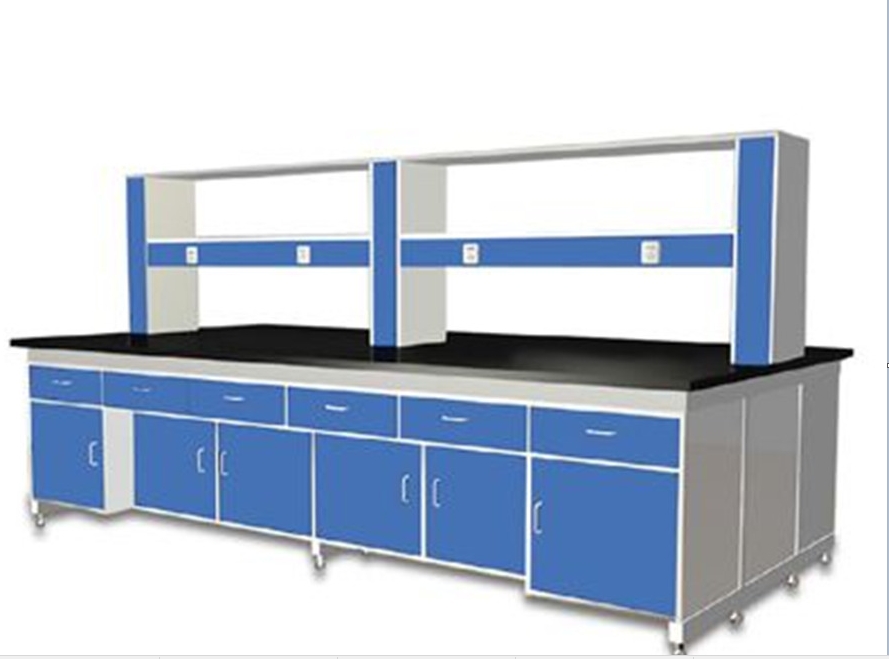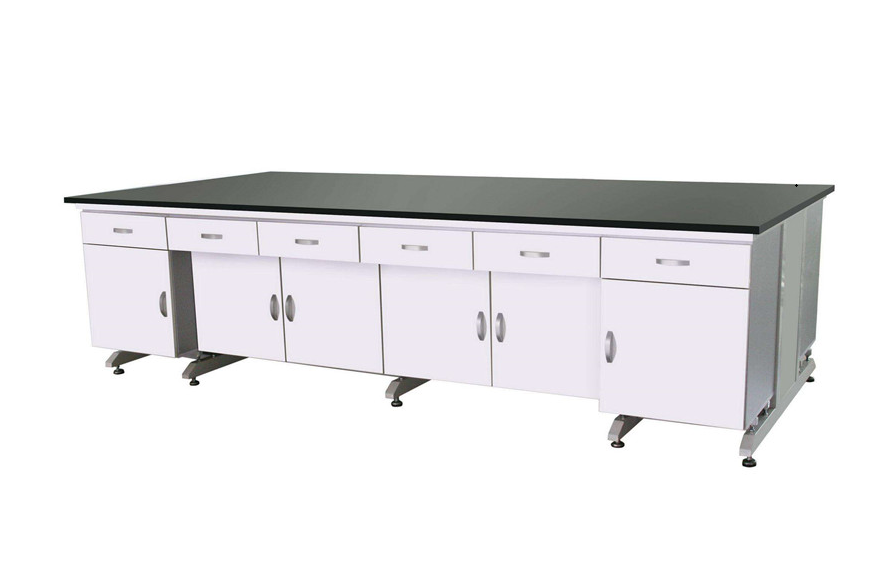The heart of any laboratory lies in its infrastructure. When we envision a lab, images of test tubes, beakers, microscopes, and scientists in white lab coats come to mind. However, these instruments and experts require a robust and tailored platform to conduct their experiments – the laboratory benches. These benches are not merely tables; they are specialized workspaces designed to accommodate the specific needs of laboratory environments. Let’s delve deeper into understanding the different types of laboratory benches and their significance.
Fixed Laboratory Benches:
Stability is the hallmark of fixed laboratory benches. These benches are permanently affixed to a location in the laboratory, ensuring a robust and steadfast workspace. Made from materials that resist corrosion, heat, and chemical reactions, they are ideal for labs that employ heavy equipment or processes that demand a steady platform.
One of the standout features of fixed laboratory benches is their integrated storage capabilities. With drawers, cabinets, and sometimes even shelving above the work surface, these benches cater to the need for easy accessibility to tools and materials.
However, the permanence of these benches could sometimes act as a limitation. In labs that undergo frequent restructuring or need adaptive spaces, fixed benches might not be the optimal choice.

Portable or Mobile Laboratory Benches:
Flexibility takes center stage with portable or mobile laboratory benches. Designed with mobility in mind, they often feature casters or wheels, allowing them to be moved across the lab with ease. This dynamic nature makes them a favorite in laboratories that require frequent reorganization or have multipurpose needs.
Especially beneficial in educational setups or labs that juggle multiple projects, these benches provide the versatility to adapt the lab layout as per the task at hand. The trade-off, however, lies in their stability. They might not provide the same steadiness as their fixed counterparts, making them less suitable for tasks that demand utmost precision.
Specialized Laboratory Benches:
Certain tasks demand specialized environments. Tailored to cater to these unique needs, specialized laboratory benches come equipped with features that suit specific experimental requirements. A prime example in this category is the Chemistry Lab Workbench. Designed with chemical experiments in mind, these benches boast of resistance against a plethora of chemicals.
Safety, a paramount concern in chemical labs, is also addressed with features like splash guards, fume hoods, and integrated sinks and faucets. The materials used for these benches are chosen for their non-reactive properties, ensuring that no inadvertent reactions compromise the experiments.
The downside of such specialization, however, is a lack of versatility. These benches are best suited for the tasks they are designed for and might not be as adaptable to varied laboratory needs.

The Imperative of Choosing the Right Laboratory Bench:
A laboratory bench is not a mere piece of furniture; it’s an integral component of the lab’s workflow. Its impact is multifaceted:
- Safety: Laboratories are spaces where even minor oversights can lead to significant hazards. A bench tailored for the lab’s operations ensures that risks are minimized. For instance, a chemistry lab workbench with its safety features can prevent potential accidents during chemical experiments.
- Efficiency: An organized bench enhances the efficiency of the workflow. When tools and equipment are within easy reach, time is saved, and the accuracy of operations is improved.
- Adaptability: Laboratories are ever-evolving spaces. With the rapid strides in science and technology, labs need to adapt quickly. Benches that can cater to changing needs, be it through mobility or modularity, ensure that the lab remains future-ready.
Factors to Consider When Selecting a Laboratory Bench:
Choosing the right laboratory bench is a decision influenced by several considerations:
- Nature of Operations: The bench should resonate with the lab’s operations. Chemical labs would benefit from a specialized chemistry lab workbench, while multipurpose labs might lean towards mobile benches.
- Space Considerations: The size and layout of the lab play a pivotal role. In constrained spaces, the flexibility of mobile benches might be more appealing, while larger labs could opt for expansive fixed benches.
- Budgetary Constraints: While quality should never be compromised, it’s essential to balance functionality with budgetary allocations.
- Anticipated Future Needs: A forward-thinking approach can save future costs and hassles. Anticipating how the lab might evolve in the coming years can guide the bench selection process.
To Sum Up:
Laboratory benches, with their varied designs and functionalities, play a pivotal role in shaping the efficacy and safety of lab operations. From fixed to mobile to specialized benches, each has its set of advantages tailored to specific needs. Making an informed choice can ensure that the bench not only serves its immediate purpose but also stands the test of time as the laboratory grows and evolves.
